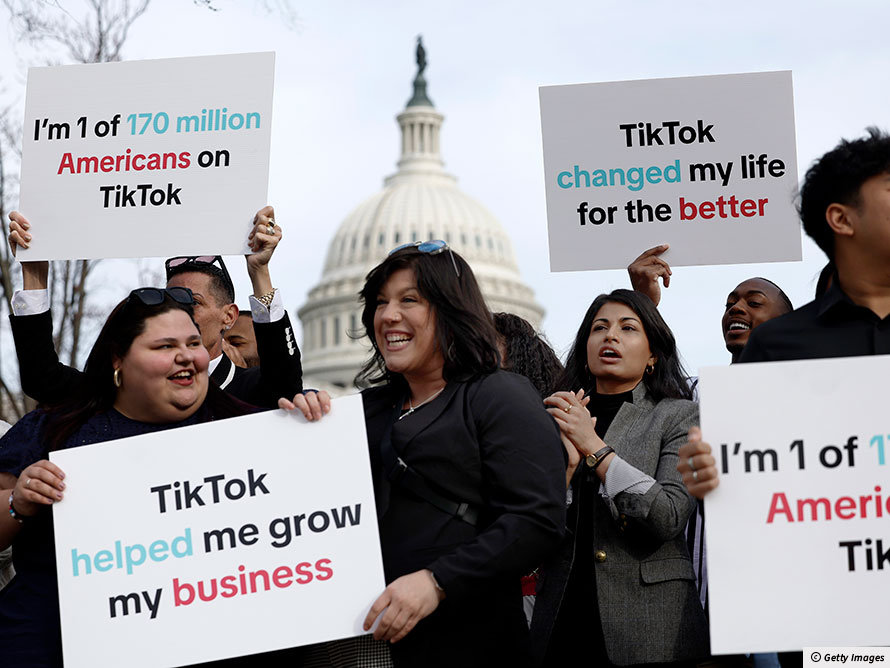Would you miss it? The US House of Representatives has voted to ban TikTok. They fear the Chinese government might use the data. Users argue a ban threatens jobs and creativity.
USA moves to ban TikTok for security reasons
 Protest: TikTok creators, above, say the proposed ban threatens lives and livelihoods.
Protest: TikTok creators, above, say the proposed ban threatens lives and livelihoods. Glossary
House of Representatives - The lower chamber of the United States congress. There are 435 representatives, with a certain number allocated to each state based on the state's population.
Algorithms - Any set of rules followed by a computer. In the context of social media, “the algorithm” refers to the intelligent AI that learns the interests of the user and presents them with posts that it thinks will interest them.
Propaganda - Information, which may be biased or misleading, used to promote a certain viewpoint.
Senate - The upper chamber of the Congress that - along with the US House of Representatives (lower chamber) - comprises the legislative branch of the US government. Each of the 50 US states is equally represented by two senators, regardless of its population size.
CEOs - Chief Executive Officers. The highest-ranking person in a company.
Mark Zuckerberg - Since founding Facebook as a university student, Zuckerberg has become one of the top ten richest people in the world.
Elon Musk - A South African-born entrepreneur whose companies have included the online payment service PayPal. He now controls Twitter, renamed 'X'.
Globalisation - The growing interdependence of the world's economies, peoples and cultures.
Nationalist - A person who believes strongly that their country is better than all others.
Parodies - Imitations of a situation or famous person, often intentionally exaggerated.
Buster Keaton - An American actor best known for his physical comedy in the silent film era. He is regarded as one of the greatest actors and directors of all time.
